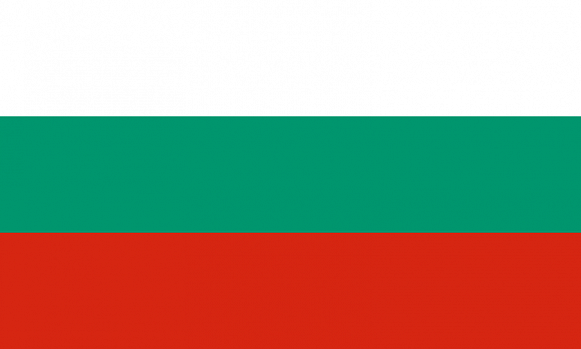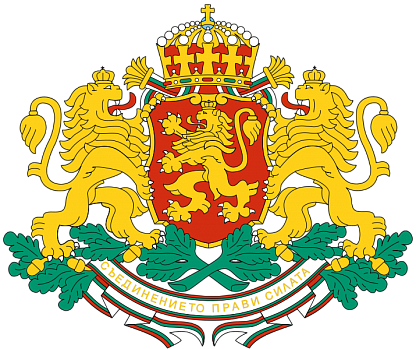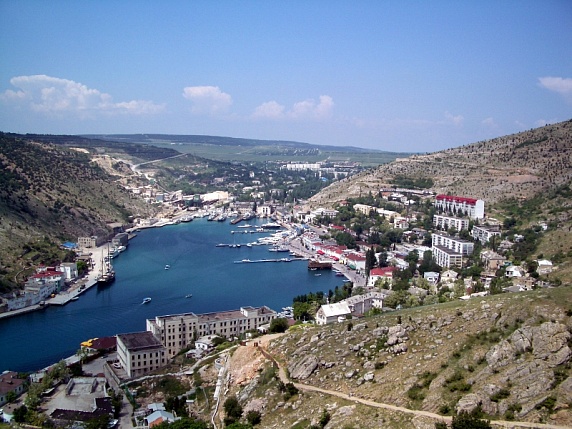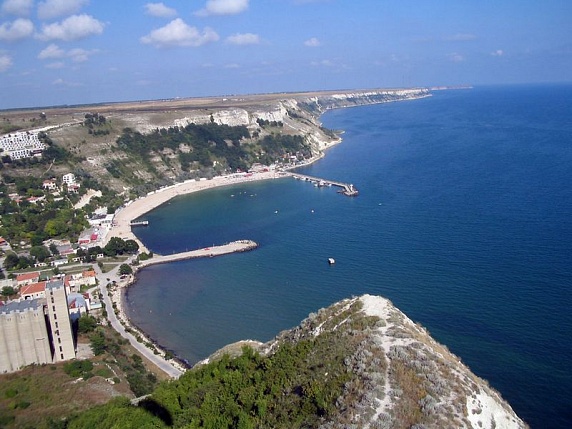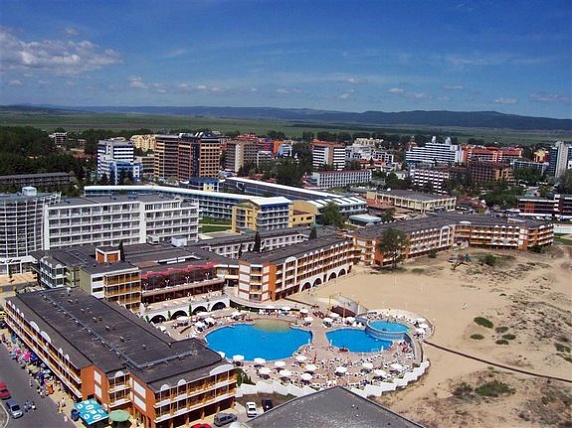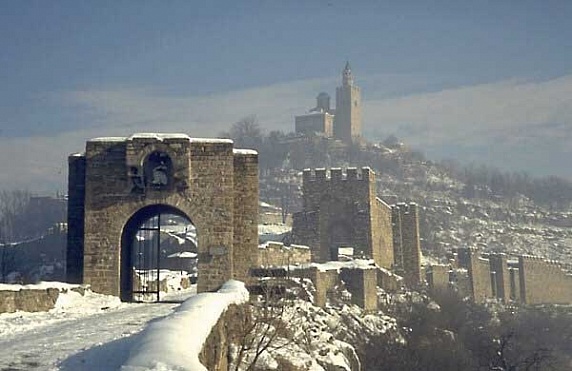 la République de Bulgarie
la République de Bulgarie
Speech by the Russian Foreign Minister, Sergey Lavrov, and his answers to questions from the mass media during the press conference summarising the results of the negotiations with the Bulgarian Foreign Minister, Kristian Vigenin, Sofia, 7 July 2014
Ladies and Gentlemen,
We have just completed a substantial day of negotiations within the framework of my visit to Bulgaria, which coincides with 135 years since the establishment of diplomatic relations between our countries. By celebrating this anniversary, we recall the many ages of the history of Russian-Bulgarian ties. They are based on the deep mutual liking and friendship, which unite our fraternal people, a rich common spiritual and cultural heritage, memories of victories won in the fight for the freedom and independence of Bulgaria.
Today we noted with satisfaction the significant potential for extension of our cooperation in various areas. We agreed to take further steps to activate our trade and economic cooperation. We devoted particular attention to the prospects of development in the energy area, primarily in the implementation of the Bulgarian section of the South Stream gas pipe project, which should significantly reinforce energy security throughout Europe. For our part, we emphasised the need to finish building within the set deadlines. For these purposes, we confirmed our readiness to continue a constructive dialogue with all the interested parties – both the countries participating in the project and the European Commission.
We are ready to develop cooperation with our Bulgarian colleagues on other energy projects and the implementation of such agreed interaction plans like the extension of the railway and ferry crossing between the Russian port of Kazkaz and the Bulgarian port of Varna by launching new ferries, primarily from Bulgaria.
We welcome the development of interregional ties and direct contacts between business circles. We believe that this important component of Russian-Bulgarian relations has all the necessary prerequisites for further extension and deepening.
In general, we noted that Russian-Bulgarian interaction embraces various directions, which is confirmed by the Intergovernmental agreement on cooperation in the area of health care and medical sciences, which was signed today. We discussed other projects in the agreement stage, which should significantly enrich the contractual legal framework of our cooperation.
We share the opinion that contacts within the ambit of parliaments, community and religious associations are an important facet of our bilateral ties. We noted wide opportunities of cultural and humanitarian cooperation in the interests of consistent development of our partnership. We agreed to accelerate the coordination and signature of the Programme of interaction in the area of culture, science and education for 2015-2017.
We substantially discussed the problems which have accumulated in relations between Russia and the European Union today. We believe that strategic partnership between Moscow and Brussels should overcome the current stage, which is not that easy. The arising and mainly artificial misunderstanding should not prevent the consistent course of these strategic relations in the interests of the Russian Federation and the EU states.
We appreciate the constructive role of Bulgaria within the ambit of relations between Russia and the EU, and the NATO-Russia Council (NRC). We believe that the NRC should not avoid discussing serious topics, it should be the arena for sincere and constructive discussion of any disagreements between its participants.
We reviewed the situation in the Balkans, in the Middle East and in North Africa. Of course, we touched upon the situation in Ukraine. Our joint interest is that the bloodshed should end as soon as possible. We believe there can be no reservations or pretexts for postponing the immediate cease fire, which brings suffering to civilians, increases the flow of refugees and destroys civil infrastructure.
We appreciate our cooperation with Bulgaria in such international organisations and bodies as the UN, the Council of Europe, the OSCE, the Black Sea Economic Cooperation and Blackseafor.
I am thankful to my colleague for our joint work. We thank our Bulgarian friends for their traditional hospitality. I invited the Bulgarian Foreign Minister, Kristian Vigenin, to make a visit to the Russian Federation. I hope that it will take place within the agreed deadlines.
Question: Bulgaria views the South Stream as a strategic factor for Bulgaria and Europe. In your speech you note that Russia is ready for constructive dialogue. What concessions is Russia ready to make with regard to the South Stream? Will you have to resign the South Stream agreement?
Sergey Lavrov: I would not like that the resolution of any problem in the psychology of our European, including Bulgarian, friends is based on Russia's concessions. The problem should be resolved on a mutually acceptable basis, and the South Stream is not an exclusion. Let me remind you that the principled agreements with the member states of this project were reached sufficiently long ago – respective intergovernmental agreements were signed, including with Bulgaria. This was done before the so-called Third Energy Package of the European Union entered into force. Our position was absolutely clear. We respect the Third Energy Package.
We believe that the EU countries have full rights to establish any rules of cooperation in any area of their territory. According to the basic norms of international law, these rules cannot be used retrospectively. This is the fundamental principle of international law. We are convinced that any problem can be resolved, if there is good will. The European Commission once understood us.
By mutual consent of Russia and the European Commission, a work group was created, which was dealing with issues of the practical implementation of the South Stream project in the context of the parameters, established for the future by the Third Energy Package. Unfortunately, the activities of this work group were suspended at Brussels' initiative. We trust that this "freezing" will stop, because there are all the reasons to believe that a mutually acceptable result can be achieved. Moreover, we are convinced that this is real. We encourage the European Commission to restart these contacts. Some work-related consultations are starting, which, as we hope, will be successful. We have many examples before our eyes, when the European Commission has made quite reasonable exclusions from the requirements of the Third Energy Package, including with regard to the Trans Adriatic gas pipeline. With regard to this project, the European Commission made an exclusion not with regard to the access of a third party and the level of rates, but in what concerns the marine section of this pipeline, as well as for three or four other marine sections of gas pipelines, which exist in addition to the Trans Adriatic pipeline. This has been done on the basis of the conclusion by the European Commission, that these pipelines can be considered to be outside the framework of the existing EU law. This particular argument was formulated by our Bulgarian colleagues in their relations with Brussels.
I emphasise that Bulgarian law views the marine section of the South Stream gas pipeline as being extraterritorial with regard to EU norms. We expect that in this case the European Commission will demonstrate a reasonable approach, and will apply a single standard to the South Stream gas pipeline project. Everything is within the framework of rules, if the situation is not politicised.
Question: Could you please tell us more in detail about the results of yesterday's session of the Contact Group on Ukraine – the short OSCE message has not made it clear whether any progress was made. Does Russia consider it a possibility to conduct an international peace-keeping operation in the territory of Ukraine, if there are no advances in such meetings in the near future and fire is not ceased?
Sergey Lavrov: The meeting in Kiev yesterday was not a full-format meeting – the Ukrainian leaders were represented by the ex-President, Leonid Kuchma, and the Foreign Minister, Pavlo Klimkin, no representatives of the militia were present there. Unfortunately, the agreement on faster convention of the full-format Contact Group, with the participation of the militia to coordinate parameters of the bilateral cease fire, which was reached by the Russian, German, French and Ukrainian leaders in the phone conversation of the 30 June and reinforced in Berlin on the 2 July, at the order of the leaders of the four countries, at the meeting between the Russian, German, French and Ukrainian Foreign Ministers, has not been implemented. The "problem" was the coordination of its venue. For known reasons, leaders of the militia were not able to leave the South-East and proposed to meet in Donetsk – it would be strange to leave, when massive military actions are ongoing against South-Eastern regions. They were indeed elected by their people on the square in the same way as the current leaders (in Kiev) were elected on the "Maidan". It is an unreal request to ask them to leave their people and go to other Ukrainian regions or even abroad.
We considered different variants of the meeting in Donetsk, including with the OSCE, and the necessary security conditions. Unfortunately, this did not work, not through any fault of our own, and the meeting was held in Kiev without the representatives of the South-East. It completed with a reciprocal appeal to agree on a mutual cease fire as soon as possible. Of course, there is nothing strange in this appeal, and we fully support it. The main things are in the details, which require a meeting to agree on a mutual cease fire. Unfortunately, the Ukrainian leaders state that a bilateral cease fire is possible only, if the "peace plan of Petro Poroshenko" is implemented in full scope. As is known, along with the appeal for a cease fire, which we support, the militia should lay down weapons and, in fact, capitulate. Only then will the Kiev authorities consider the possibility of giving amnesty to some of them. This complication is still bringing serious problems into the process, which we are attempting to support.
We are seriously concerned about the growing numbers of civilian casualties and the destruction of civil infrastructure. We heard statements by Ukraine that the Army received the order not to shoot at or bomb populated areas – to do everything to avoid civilian casualties. However the pictures from the air state otherwise – cities, villages, roads, orphanages, maternity hospitals and hospitals are being destroyed. This reminds me of Belgrade in the spring and summer of 1999 – I remember those pictures. I will take the liberty to say that things are much more serious than in Belgrade.
I think that we need to put all our ambitions aside and think primarily about saving human lives. I am convinced that a cease fire will allow the start of negotiations, which will make it possible to coordinate mutually acceptable parameters of the further political process with full respect for the interests of all the Ukrainian regions and agreements on fair conditions to ensure the rights of all population groups in this fraternal country, which is close to us.
I would like to say one last thing. If this goal is evident for us, then we wish it to become evident for all the other states, which affect Ukraine in one or another way, primarily for the European Union. We have reason to believe that the leading European countries are aware of their responsibility for these events. We wish the United States would join the awareness of this responsibility.
Question: In your opinion, is the Eurasian project topical for Bulgaria? Why do Russian projects in Bulgaria become an obstacle for bilateral relations instead of creating conditions for normal business?
Sergey Lavrov: You have formulated your question in quite a strange way – in the first and the second question you proceed from some statements of some facts. I have not understood the question about the topicality of the Eurasian project for Bulgaria very well. I do not recall Bulgaria asking us to accept it there.
Today, during our negotiations with the President, the Prime Minister and the Minister of Foreign Affairs of Bulgaria, we felt their interest in the creation of the most favourable conditions for trade, economic and humanitarian cooperation between each and all the states in the vast space of the Euro-Atlantic region – both EU members and members of the Eurasian Economic Union (EAEU), which is being formed, and other countries, which are not members of these associations.
We have felt a positive attitude corresponds in the long-term to the known Russian initiative to start the formation of a common economic and humanitarian space stretching from the Atlantic Ocean to the Pacific Ocean. Let me recall that this January at the EU-Russian summit in Brussels the President of Russia, Vladimir Putin, proposed agreeing on the start of expert consultations to develop the idea of the creation of a free trade zone between the EU and the EAEU by 2020, as a first step.
As to your question-statement that any projects discussed by Russia and Bulgaria, become some kind of an obstacle, I do not understand what you mean. Our flagship projects include the South Stream - you have just heard our opinion about the need to implement it. Other existing plans were also supported today – I mean the extension of the railway ferry crossing between Varna and Kazkaz ports.
We have many projects in the investment area. We are grateful to our Bulgarian friends for their interest in attracting Russian capital to their economy. Russian companies do the same – many of our private and state companies have followed the example of OAO Lukoil and discussed joint work on the Bulgarian market with their partners. There are projects, which are frozen yet (the construction of the Belene nuclear power plant, the Russian, Bulgarian, Greek project to construct the Burgas-Alexandroupoli Transbalkan oil pipeline). We believe that they are still "on the table". We understand the circumstances affecting their practical implementation and make no tragedy of them. Any project will be viable, when the rules of the game are agreed on by all the states involved in its development and implementation. We expect that mutual benefit for all the participants rather than political or geopolitical considerations will be the main criterion.
